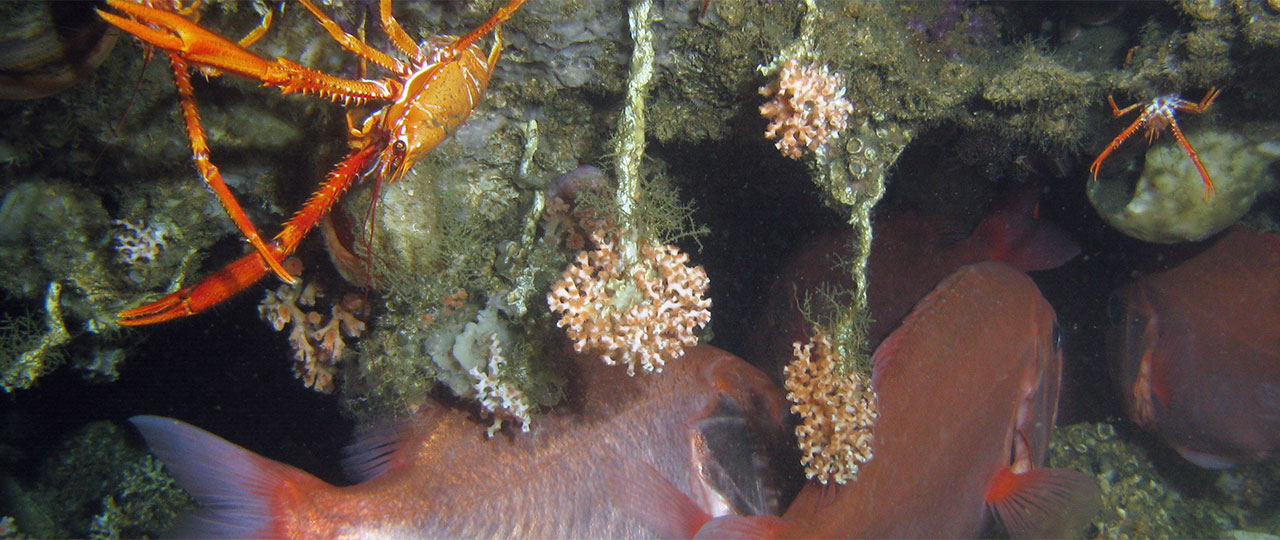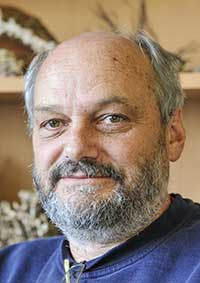Marine Geology
Cooperation Professorship Senckenberg world of biodiversity Wilhemshaven
We investigate the species composition, their ecological functions and structural processes which lead to the formation of biosedimentary deposits in coastal and shelf seas and at continental margin settings. Demonstrative example for such systems are seagrass meadows, kelp forests and coral reefs. In our focus are modern and fossil reef-building cold-water coral ecosystems in 200 to 1000 m water depth which are supported by a corresponding great diversity of species. As a consequence of interacting feedback processes, the corals are capable to construct considerably high structures on the seabed within a few thousand years. In this aspect, cold-water coral reefs strongly resemble their cousins from the tropical and sun-illuminated seas. Our interest focuses on the response of biosedimentary systems to environmental change of different origin and acting on different time scales.

Working Area
North East Atlantic, Gulf of Mexico, Mauritania, Angola, NamibiaMethods
Aside of classical methods in carbonate sedimentology, habitat mapping and taxonomy, we investigate the functional traits of reef organisms with a variety of imaging tools. A speciality of our team is computer tomography.
Prof. Dr. André Freiwald

(Only in German)
1989 Diplom in Geologie-Paläontologie, Universität Kiel
1993 Promotion Universität Kiel
1999 Habilitation Universität Bremen
Anstellungen/Aufenthalte:
1989-1993 GEOMAR Forschungszentrum in Kiel
1993-1999 Universität Bremen
2000-2002 Universität Tübingen 2002-2010 Institut für Paläontologie Universität Erlangen
Seit 2010 Leiter der Abteilung Meeresforschung am Senckenberg Institut in Wilhelmshaven
Professur in Bremen seit 2010
Forschungsgebiete:
Meeresgeologie, Sedimentologie, Paläontologie, Marine Zoologie
Tel. +49 4421 9475 - 200
andre.freiwald senckenberg.de
senckenberg.de
Forschungsinstitut Senckenberg
Senckenberg am Meer
Südstrand 40
26382 Wilhelmshaven
Prof. Dr. André Freiwald

Forschungsinstitut Senckenberg
Senckenberg am Meer
Südstrand 40
26382 Wilhelmshaven
Tel. +49 4421 9475 - 200
andre.freiwald senckenberg.de
senckenberg.de
Senckenberg am Meer
Südstrand 40
26382 Wilhelmshaven
Tel. +49 4421 9475 - 200
andre.freiwald
 senckenberg.de
senckenberg.de
